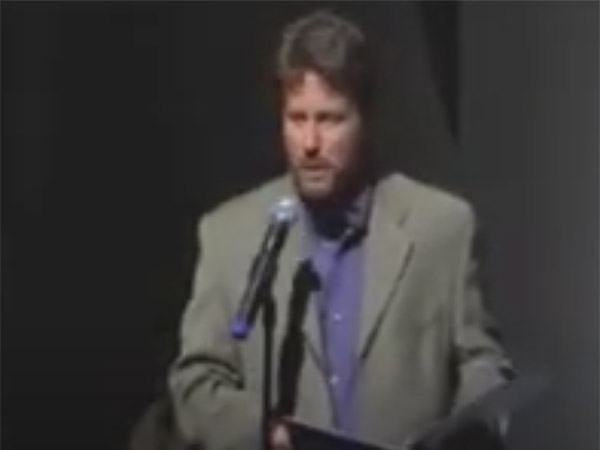I’m in college. It’s fall on campus and leaves burn like fragments of tinted neon lighting. But I have stopped seeing them. I have stopped seeing colors all together. Everything exists in shades of gray and black blacks. I am weak and defeated.
Hours ago, a Ruger handgun was removed from my apartment by the campus police. A gift from my father while I was in high school, I’d secretly smuggled it from home to kill myself in my apartment’s grubby little bathroom with the dripping sink, water bugs, and the tub with permanent brown stains.
Unfortunately, I told a psychologist at Psychological Services about it, and they, in my mind, betrayed me by sending the police to take it away. With the gun removed, I am allowed to remain at school. But I don’t get better, as I lead everyone to believe. In fact, I get worse.
I am in a death spiral. I know it in my heart. I am so depressed that my skin hurts, the colors remain drained from my vision, and the slow grind and movement of time, of minutes, hours, and days scour my psyche raw, like the rectangular gears of a clock are opening up my skull as they move.
Living and breathing disgusts me. I drink beer, quarts of Black Label, Schlitz, anything inexpensive, to escape. I injure myself with shards of glass, writing pens that I bury deep into my shoulder muscles, and physical punishments meant to break bone and impose hospitalization, which I am very successful at doing.
My girlfriend, Gina, wonders where the quiet, artsy boy she met has gotten to. I don’t know myself. She leaves me in the months before Christmas. I can barely move, can hardly inspire myself to rise.
Then, after a difficult holiday, I am suddenly soaring out of control. I stay up all night. I get into fights, tell people to “fuck themselves.” I read every Hemmingway book he’s ever written. I shoot through the works of John Cheever. I ridicule people who aren’t as well read, flirt with girls from my classes. I dive out dorm room windows. I smash my body into cars.
And then, when I am partially broken, bleeding, clotted with bruises, adorned with black eyes and busted knuckles, I crash back down, destroyed in a deep, deep pit of suffocating gloom.
I have no hope. I am hopeless. There’s something wrong in me that won’t correct itself. I cut slashes deep into my wrists that needed thread and needle to heal, took bottles of pills, allowed untended cuts to develop gangrenous infections. Lacking peace, I sought escape. Either intentionally or unintentionally, I never attained it.
Somehow, after college, the heightened feelings faded. In 1991, I found something that resembled hope in a relationship I developed with a woman living in Baltimore. I quickly relocated from Charlottesville, Virginia to Mob Town.
These days, I’m married to that woman. She can tell jokes that cause a person to gasp for breath. She has a wanderlust so powerful that she plans trips years in advance, sets up collection cans for vacations to Yellowstone or Yosemite. She trusts phone solicitors, has given strange men her entire credit card number.
We have two lovely kids, neither of whom ever imagines their father, who is playful and kind, rocked by an insanity so thick that familiar names and events vanish in the miasma of my brain disease. They’d never guess that joy, inside of me, can resemble a foul, idiotic rumor.
They count on me, and the excuses, the moods, the cycling, has to be dealt with, medicated, faked, pounded, somehow, someway, into submission. I would rather die a thousand times than let them know the truth.
Despite feeling better, when I first met my wife, I was cycling constantly, fighting the sensations but ultimately giving in. I would go to bed at night feeling normal, and the next day I’d awaken as if decomposing bodies were stacked around me. Somewhere about two weeks after the deep moroseness took me, the opposite sensation usually began to steal my personality.
I would rise feeling light and quick and unimaginably entertaining, a state that would eventually, over about a week, morph into aggravation, high agitation, and the sensation that my skin was crawling off my muscles, that I was uncomfortable, uncalmable, at the genetic level. When I breathed, I took in sharp, quick breaths, my lungs having forgotten their natural rhythm.
Days after we were married, on our honeymoon, life ahead full of prospects, depression cycled back around and lurked at the fringes of my battered brain. Its presence infuriated me. I hated the illness for intruding. I went walking and wanted to scream.
But I didn’t. I held my fury inside, burning. I swore that I would do anything to make what I was feeling go away. On Cape Breton Island, feeling like an animal sinking into a tar pit, I imagined killing in me what was killing me instead of just plain killing me instead. It was a colossal shift in the way I thought.
From that point, it took fourteen years before I was finally prescribed lithium. By then, I’d taken a long list of semi-helpful to unhelpful psychotropic drugs. Since those long ago college days, I have experienced moments of discomfort so global that they would be banned if they could be induced as torture.
But I have also had great successes, staggering defeats, beautiful relationships, loving children, and times with my wife and kids, brother and sister, mother and step-father, that have exceeded all available expressions of joy.
If you know me now, or have known me for many years, you might be surprised that I suffer from a bipolar disorder. But I do, I have, and I always will. If I go off my medications, I am too quickly right back to where I was.
Last fall, when I had the unintelligent idea to stop taking lithium to lose weight, I suddenly began staying up all night, hammering sloppily away at my work, watching early morning television, buying scads of rock posters on line, spiraling to an unsustainable point where mania gave way to utter disgust and loathing then depression, and I was forced, once more, to start again. I am bipolar.







